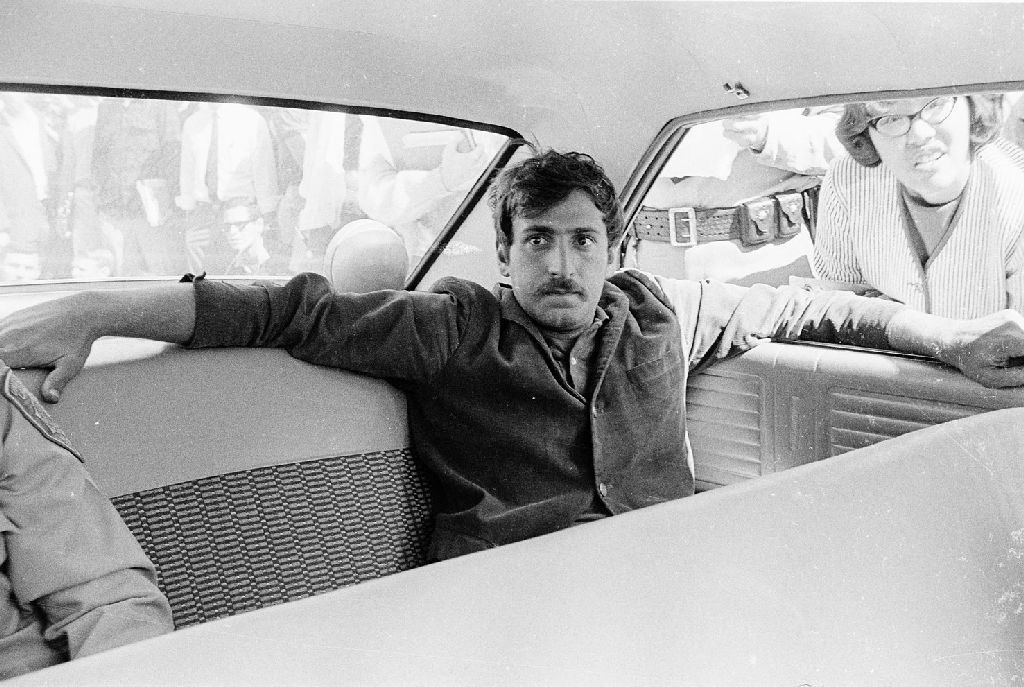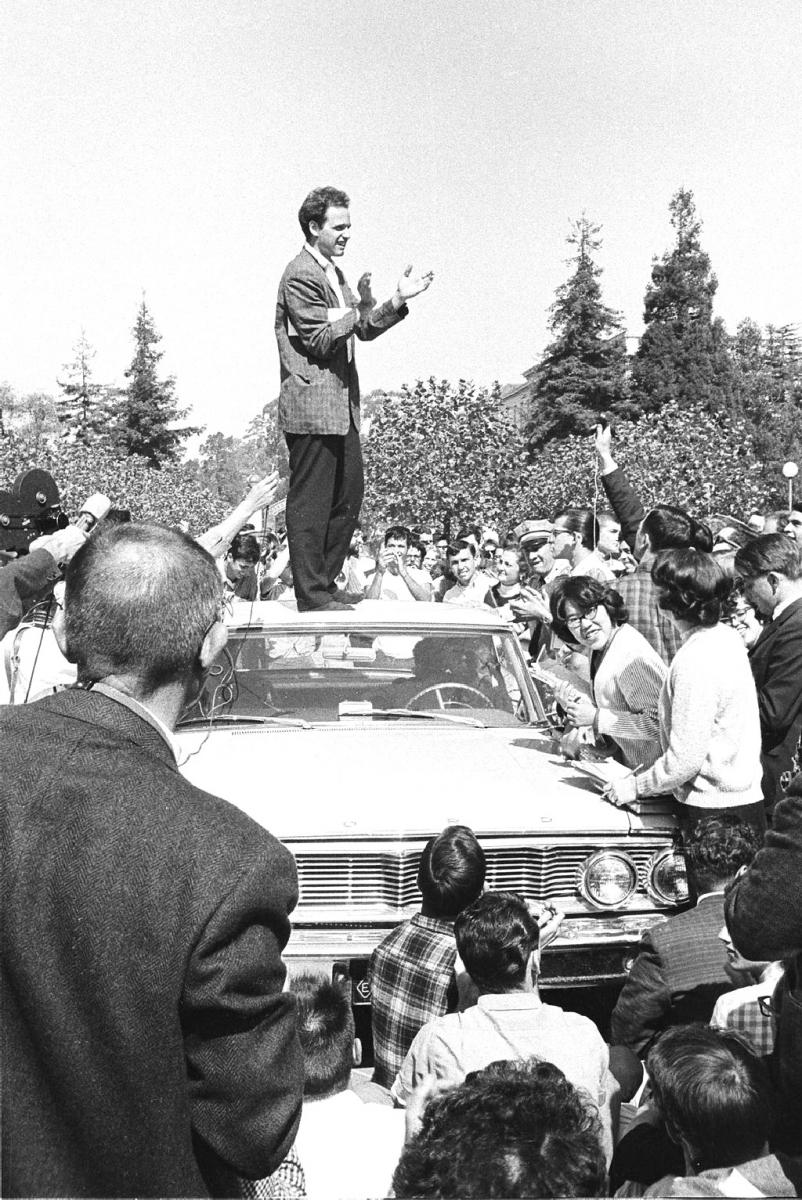
Cal Celebrates Students it Once Punished
 |
|
|
The ‘Sixties,’ as we know them, began in many places, but in no place with more resonant poetry than in UC Berkeley’s Sproul Plaza. Now the University, which reacted initially with cop cars, hand cuffs and mass trials, is celebrating the 50th anniversary of the Free Speech Movement with movies, lectures, a sing-in and, yes, poetry readings.
The Berkeley Historical Society is also looking back at the Free Speech Movement with an exhibit and other events that begin September 28. The opening features a talk by Bettina Aptheker, one of the founders of the Free Speech Movement.
Many of the campus events go beyond the Free Speech Movement itself to delve into other causes, other protests, and the nature of protest itself.
 |
|
|
On October 1, for example, there will be a “a teach-in on the nature of the public university. Looking at the state cutbacks to education funding and the university's increased reliance on private sources of funding since the 1960s, the teach-in will examine race and educational access, student debt and rising inequality, the marketization of research, and other pressing issues of the day.”
What were they after, these students in 1964 who began protesting when clueless administrators decreed that advocating for social issues would no longer be permitted at the entry to campus?
Having volunteered in the Civil Rights movement in the South, many of them, or served in the Peace Corps, or worked with poor people in Inner City America, they had many causes. But, at its root, the protest was against a society, a bureaucracy, that controlled and dehumanized all whom it touched.
“There is a time,” leader Mario Savio orated, “when the operation of the machine becomes so odious, makes you sick at heart, that you can’t take part. You can’t even tacitly take part. And you’ve got to put your bodies upon the gears and upon the wheels, upon the levers, upon all the apparatus, and you’ve got to indicate to the people who run it, to the people who own it, that unless you’re free, the machine will be prevented from working at all.”
His words were compelling. And so were the actions of leader Jack Weinberg, who spent 32 hours in a cop car after being arrested for not showing his ID. Students surrounding the car turned the arrest into a rallying cry.
Weinberg, by the way, was good with words too. “Never trust anyone over 30,” was his much followed advice.
- ‹ previous
- 86 of 678
- next ›



